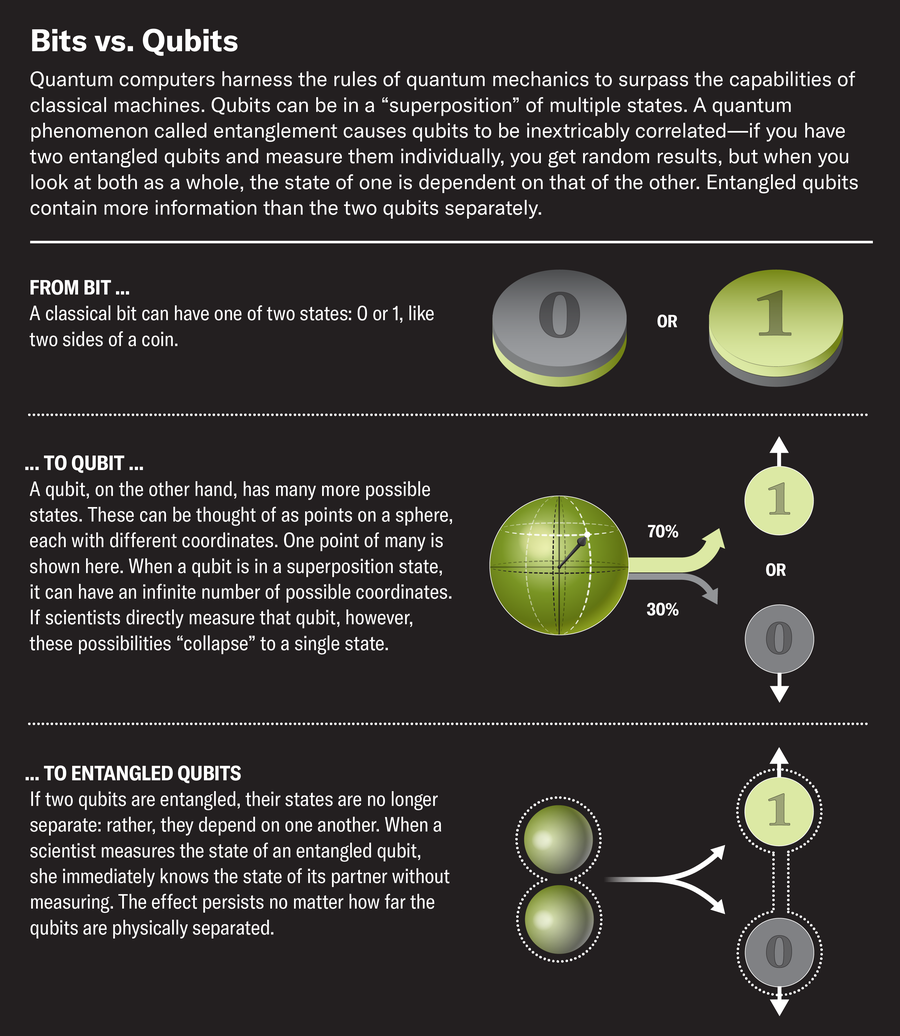For Quantum Computing, Pressing the Advantage Is a Risky Proposition
D-Wave’s fresh claim that it has achieved “quantum advantage” has sparked criticism of the company—and of the scientific process itself
D-Wave, a British Columbia–based technology firm, made a scientific and stock-market splash on Wednesday with its declaration of a breakthrough in quantum computing. But for some experts, the company’s claims are landing with a thud.
What Did D-Wave Do?
In a paper published in Science, an international team of more than 60 people led by D-Wave scientist Andrew King reported a demonstration of “quantum advantage,” which occurs when a quantum computer solves a problem that would be nigh impossible for a classical computer to handle. Quantum computers derive their number-crunching power from quantum bits, or qubits. Unlike the regular binary bits of classical computers, which use 1’s and 0’s, qubits can use values of 0, 1 and any increment in between. Classical computers handle calculations like an assembly line, bit by bit. Quantum computers can use carefully orchestrated arrays of qubits to simultaneously consider all possible values, exponentially increasing the speed and breadth of calculations.
On supporting science journalism
If you’re enjoying this article, consider supporting our award-winning journalism by subscribing. By purchasing a subscription you are helping to ensure the future of impactful stories about the discoveries and ideas shaping our world today.

Using the company’s qubit-packed Advantage2 quantum processor, the D-Wave team accurately simulated how certain physical transitions occur within magnetic materials—a key consideration in manufacturing smartphones and other advanced electronic devices. According to a company press release, the feat shows that the Advantage2 chip “performs magnetic materials simulation in minutes that would take nearly one million years and more than the world’s annual electricity consumption to solve using a classical supercomputer.”
What Happened Next?
D-Wave’s stock price increased by 10 percent in subsequent same-day trading, and the announcement led to strong stock-price gains for several other quantum-computing companies such as Quantum Computing, IonQ, Arqit Quantum and Rigetti Computing. Such upticks are part of an ongoing surge in quantum stocks, with D-Wave’s stock price almost tripling over the past year and Rigetti Computing and…
Click Here to Read the Full Original Article at Scientific American Content: Global…

